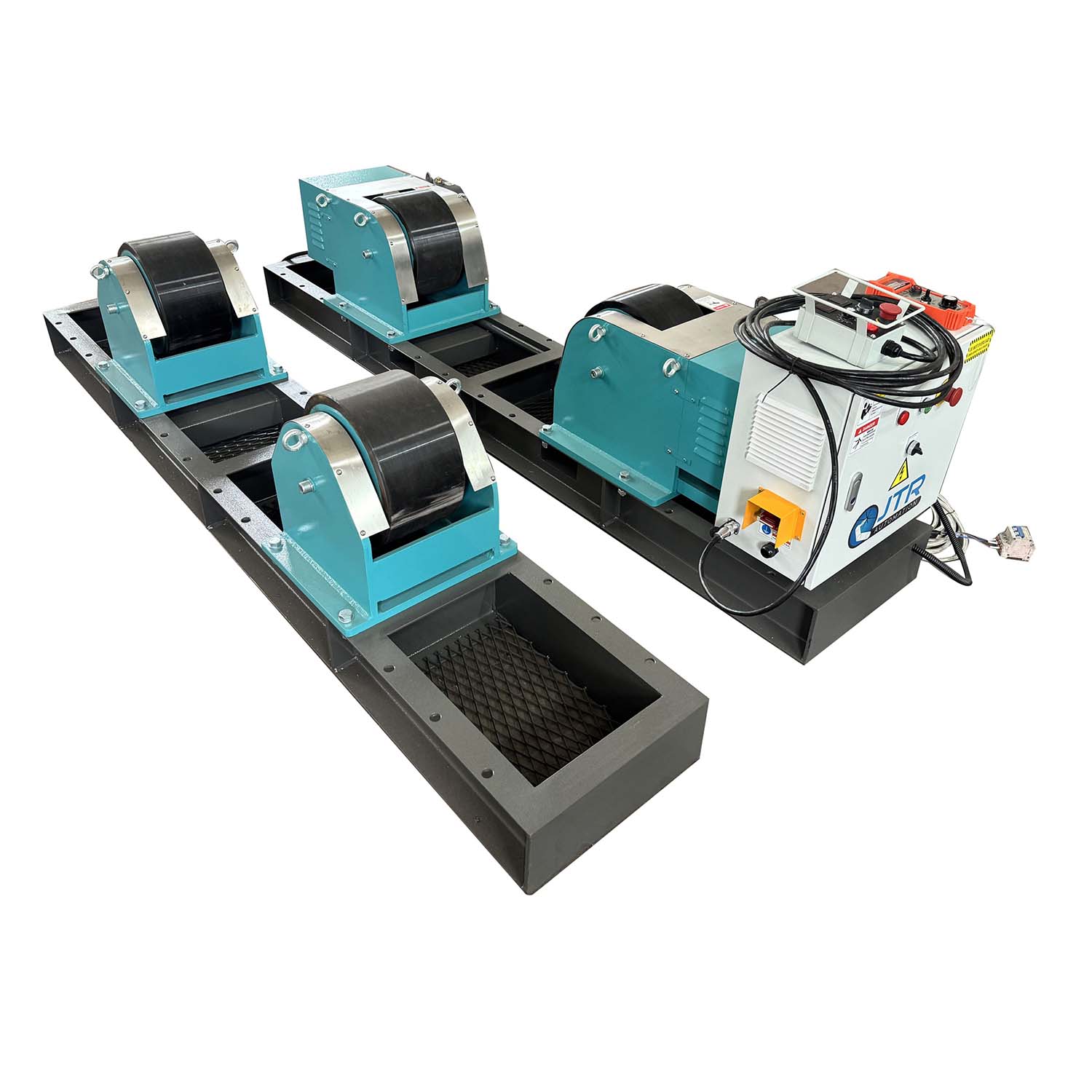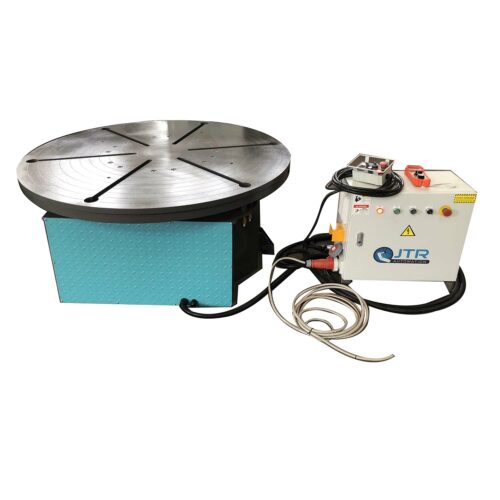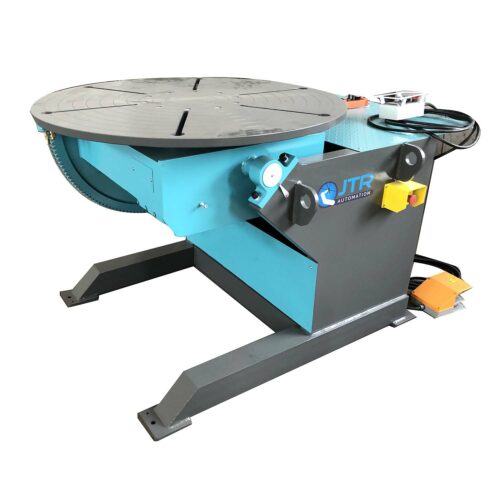Description
Welding precision for cylindrical vessels. Conventional Rotators for Pressure Vessels, Heat Exchangers, Tanks, Pipes, Wind Towers, Monopiles and Other Cylindrical Vessels. A conventional welding rotator is engineered to streamline the welding of cylindrical vessels. Key Plant Automation designs and manufactures these solutions using independent drive and idler units, enabling the placement of vessels with varying lengths on the rotators, all securely supported by the rotator wheels. The base frame offers flexibility by allowing adjustment of the wheels to suit different vessel diameters. Our CR Series represents the pinnacle of conventional welding rotators. These robust and durable turning rolls are meticulously designed and manufactured to withstand the toughest, most hard-wearing work environments. The powered drive units are equipped with a five-function pendant, including a variable speed potentiometer, providing the operator with precise control over the rotating workpiece.
Conventional welding rotators are essential equipment for handling and rotating cylindrical workpieces during welding. They improve efficiency, safety, and weld quality, making them a key tool in industries like oil and gas, shipbuilding, and manufacturing.
Benefits of Conventional Welding Rotators
- Improved Weld Quality: Smooth and consistent rotation ensures uniform welding, reducing the likelihood of defects.
- Enhanced Productivity: Reduces downtime by eliminating the need for manual repositioning of workpieces.
- Operator Safety: Minimizes manual handling, lowering the risk of workplace injuries.
- Versatility: Suitable for a range of cylindrical workpieces such as tanks, pipes, wind towers, pressure vessels, and monopiles.
- Cost-Effective: Increased efficiency and reduced material waste lead to lower production costs.
- Ease of Use: User-friendly controls simplify operation, even for less experienced operators.
These features and benefits make conventional welding rotators indispensable in achieving precision, safety, and efficiency for large-scale welding projects



